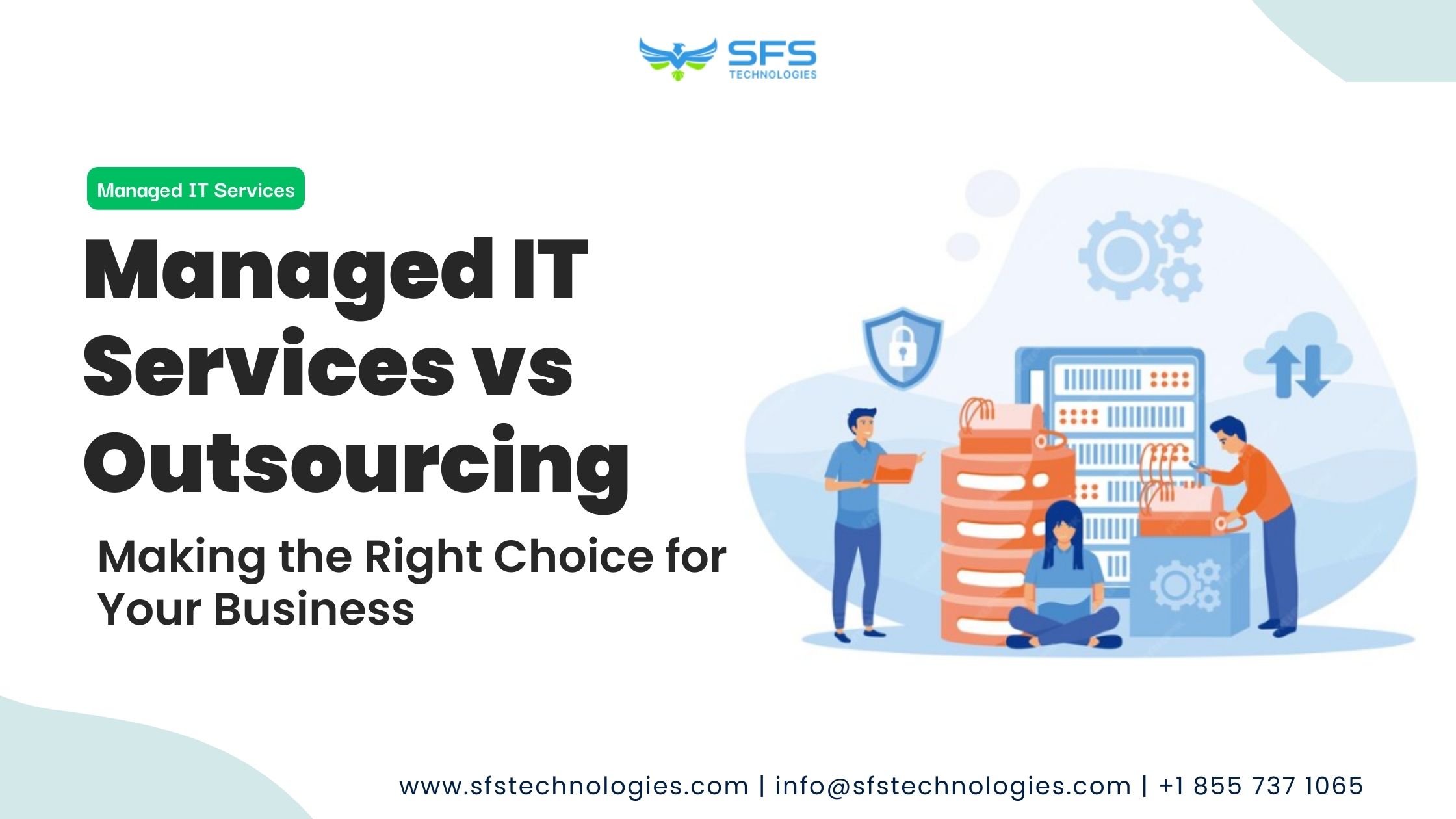
Managed IT Services vs Outsourcing: Managing IT needs is critical to success in today’s fast-paced business environment. As technology evolves, businesses may need help choosing between Managed IT Services or Outsourcing to manage their IT requirements.
While both options aim to streamline operations and improve efficiency, they differ significantly in their approach, management, and level of involvement. Understanding the differences between these two options is essential to choosing the one that best suits your business needs.
In this comprehensive blog, we’ll explore Managed IT Services and Outsourcing, discussing their features, benefits, and considerations to help you make an informed decision for your business.
Managed IT Services refer to outsourcing the operation and maintenance of a company’s computer systems to an external service provider. This allows the company to focus on other aspects of its business without worrying about network security, data backups, or computer-related problems. The external service providers responsible for these services are Managed Service Providers.
Managed Service Providers act as an extension of a company’s IT department, offering technical support and expertise to ensure the smooth functioning of the company’s computer systems.
They continuously monitor the network to ensure everything is working smoothly and assist the company in adopting new technologies such as cloud computing. In case of any problems, they offer quick solutions to ensure the company can continue working without interruptions.
Here are a few Key Featuress of Managed IT services:
Outsourcing helps empower businesses by hiring third-party vendors to perform specific IT functions or projects. Unlike Managed IT Services, outsourcing can be temporary or project-based, with the scope and duration of the engagement determined by the task requirements.
When considering the most suitable approach between Managed IT Services and Outsourcing, businesses should consider multiple factors that meet their specific requirements and objectives.
Evaluating the scope and complexity of your IT needs is essential to determining whether managed IT services or outsourcing is the better option for your business.
Managed IT Services could be the best option if you require continuous monitoring, maintenance, and support for your IT infrastructure.
On the other hand, if you have specific projects or tasks that require external expertise, outsourcing may offer a more tailored solution.
When considering your IT needs, it is essential to evaluate the cost implications of different approaches. Managed IT Services offer predictable pricing and ongoing support, while outsourcing engagements may vary in cost depending on the project scope and duration.
To make the best decision, consider your long-term IT expenditure and weigh the cost benefits against the value delivered by each option.
Assessing your internal IT capabilities is recommended to determine whether outsourcing or managed services complement your existing infrastructure and skill sets.
Outsourcing may provide specialized skills needed to enhance your capabilities if you already have a proficient IT team but require more expertise in certain areas.
On the other hand, if you prefer to offload IT management completely, Managed IT Services can offer comprehensive support and expertise.
When deciding whether to opt for managed IT services or outsourcing, it is essential to consider your broader business objectives and growth strategy.
It would help if you evaluated how each option aligns with your strategic goals, scalability requirements, and long-term vision for IT infrastructure. Ultimately, choose a solution that meets your current needs and provides flexibility and scalability to support future growth.
When considering different approaches to data management, it’s essential to assess regulatory compliance and data security.
Managed IT Services providers typically follow industry standards and comply with requirements, which means they usually have robust security measures and risk mitigation strategies.
However, if you choose to outsource your data management, you must ensure you have proper oversight and contractual agreements to protect sensitive data and intellectual property.
Businesses looking to optimize their IT operations and drive digital transformation have two options: Managed IT Services and Outsourcing.
Managed IT Services provide comprehensive support, proactive monitoring, and ongoing maintenance to ensure your IT systems run smoothly.
Outsourcing offers flexibility, cost efficiency, and access to specialized expertise for specific projects or tasks, allowing you to tap into external resources as needed.
The choice between the two depends on your business’s specific requirements, objectives, and priorities. By evaluating each approach’s essential features, benefits, and considerations, you can make an informed decision that aligns with your strategic goals and positions your business for success in the digital age.
If you want to learn more about Managed IT Services, contact our Sales team at +1 855 737 1469 or email [email protected].
Reach out to us today to talk about how we can turn your software vision into a reality.